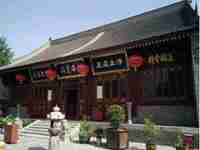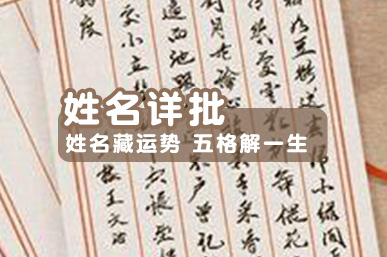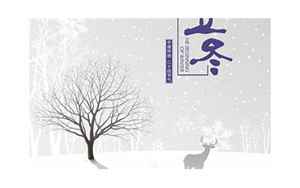过香积寺(过香积寺原文、翻译及赏析、拼音版)


过香积寺,莲花生大师亲手创办的佛教寺庙,位于江苏省苏州市吴中区太湖路16号。莲花生大师是唐代禅宗宗师,他在唐玄宗开元年间在此创办香积寺,与石舫寺、天童寺、灵岩寺合称“吴中四大名刹”。
香积寺占地面积广大,建筑规模宏伟,是中国南方最大的佛教寺庙之一。寺内的大雄宝殿和药师佛殿被誉为中国南方最精美的佛教建筑之一。香积寺内的文化遗产丰富,像甬道、山门、钟楼、鼓楼、经轩、藏经楼、莲花台和藏经阁等都具有重要的文化价值。
过香积寺的前身为古社稷寺,因为当时寺中供奉着土地公和社稷神,后来莲花生大师开创寺庙,取名为香积寺,意为“香气盈庙”。香积寺的建筑风格典雅古朴,展现出中国传统建筑的独特魅力。香积寺的主要建筑物都是以黄色的琉璃瓦覆盖,与绿树掩映,构成一道美丽的风景线。
香积寺有着悠久的历史和文化底蕴,如今成为了许多信仰佛教的人们的朝圣之地。在香积寺内,许多游客和信徒都会燃香祈福,祈求健康平安、家庭幸福、财运亨通等等。在这里,人们可以感受到一种安静祥和的氛围,远离了城市的喧嚣和浮躁。
过香积寺不仅是一座佛教寺庙,更是一座文化古迹。寺内珍藏着许多历代文物和书画作品,体现了中国古代的文化艺术。其中,最著名的是唐代的小楼,也叫朱熹小楼,是一座二层木结构小楼,为中国现存最著名的唐代建筑之一,现已列为国家重点文物保护单位。
过香积寺赏析:。
过香积寺,不仅仅是为了朝圣和祈福而来,更是为了感受它的文化底蕴。香积寺的建筑风格具有浓厚的古典气息,独特的雕刻手法和设计构思体现出了中国传统建筑的独特魅力,值得一看。此外,香积寺内的文物和书画作品也是重要的文化遗产,特别是朱熹小楼,是中国现存最著名的唐代建筑之一,非常值得一游。
过香积寺翻译:。
The Xiangji Temple has a long history and cultural heritage. Today, it has become a place of pilgrimage for many people who believe in Buddhism. In the Xiangji Temple, many tourists and believers burn incense to pray for health, family happiness, and financial prosperity. Here, people can feel a quiet and peaceful atmosphere, far away from the hustle and bustle of the city.。
Through the Xiangji Temple is not only a Buddhist temple, but also a cultural relic. The temple houses many historical。
过香积寺全译、翻译和译文
过香积寺。过香积寺,。洒满清幽,。看山色异,。闻香阵沉。楼阁罗列,。翠微云端,。数树梅花,。映日红艳。不知老禅师,。寂寞如何?。昼坐掩扉,。惟一本经。开卷有益,。目远心清,。琴声何处?。更在金山。Full translation:。Passing by Xiangji Temple,。Gaze at the unique colors of the hills,。Catch the scent of incense wafting over the temple.。The buildings and towers are arranged in harmony,。The greenery reaches up to the clouds,。A few plum trees in full bloom,。Reflecting the vivid color of the sun.。I wonder how the old Zen master,。Lives lonely in silence.。Sitting still all day behind closed doors,。With only one sutra for company.。Reading is beneficial,。Clearing the mind and expanding the sight,。But where does the sound of the guqin come from?。Translation:。Passing by Xiangji Temple,。Observe the hills' unique colors,。And inhale the scent of incense.。The buildings and towers arranged harmoniously,。And greenery reaching toward the clouds.。A few plum trees in full bloom,。Reflecting the sun's brilliant hues.。I cannot help but wonder,。How the old Zen master lives in solitude.。Sitting behind closed doors all day,。With nothing but a single sutra.。Reading is good for the mind,。Clearing and expanding it too,。But where does that exquisite guqin sound come from?。Translation:。Passing by Xiangji Temple,。Serene and peaceful surroundings,。Hills with unique colors,。And the scent of incense all around.。Buildings and towers in perfect harmony,。Greenery reaching up to the clouds,。A few plum trees in full bloom,。Reflecting the sun's vibrant light.。One cannot help but wonder,。How the old Zen master lives in seclusion.。Sitting behind closed doors,。With just one book to keep him company.。Reading, which can strengthen the mind,。And expand one's understanding of the world,。But where does the soothing sound of the guqin come from?。
古代诗歌之王维
过香积寺,王维乘舟归京,路经香积寺,在此驻足观赏,留下了一首脍炙人口的诗歌:。空山不见人,但闻人语响。返景入深林,复照青苔上。这首诗歌通过描述空山不见人的情景,却能听到人们的语言声响,表达出了寂静与生命的共存。而当夕阳倒映在树林和青苔上时,又唤起了一种温馨的感受。这首诗歌中的香积寺也成为了文人墨客心中的经典之地,如今依然是旅游胜地和文化名片。
热门推荐
推荐阅读
热门标签
热门精选
- 06-24今年是农历什么年(请问今年农历叫什么年)
- 06-24乙酉是什么意思(乙酉的意思详解)
- 06-26七杀坐比肩(七杀坐比肩是什么意思)
- 06-19预测王菲八字(传奇天后王菲的一生)
- 06-3083年属什么今年多大(1983属猪今年多大了)
- 06-15壬癸水八字(为什么壬水和癸水合作最好)
- 06-29己巳(己巳是什么意思)
- 06-11天中煞八字(空亡、劫煞、元辰)
- 06-11壬午年八字(2002年属马什么命五行)
- 06-18坤造是八字吗(算命中的坤造是什么意思)
生肖猪最新文章



- 09-29过香积寺(过香积寺原文、翻译及赏析、拼音版)
- 09-29澎湖列岛(外婆的澎湖湾)
- 09-29班马配种(马儿的交配和繁殖)
- 09-29梦见祖坟被别人破坏(梦见坟地被人破坏了是什么意思)
- 09-296块钱麻辣烫(6块钱的麻辣烫什么意思)
- 09-29草草了事(草草了事是什么意思)
- 09-29属猪人2021的每月运势(属猪人2021年全年运势及每月运程完整版)
- 09-29鼠肖今年运势(属鼠的人2020年的运气如何)
- 09-29运势测算2022年羊(属羊人在2022年运势如何)
- 09-29梦见穿别人的白鞋(梦见穿别人的白鞋有什么预兆)






























